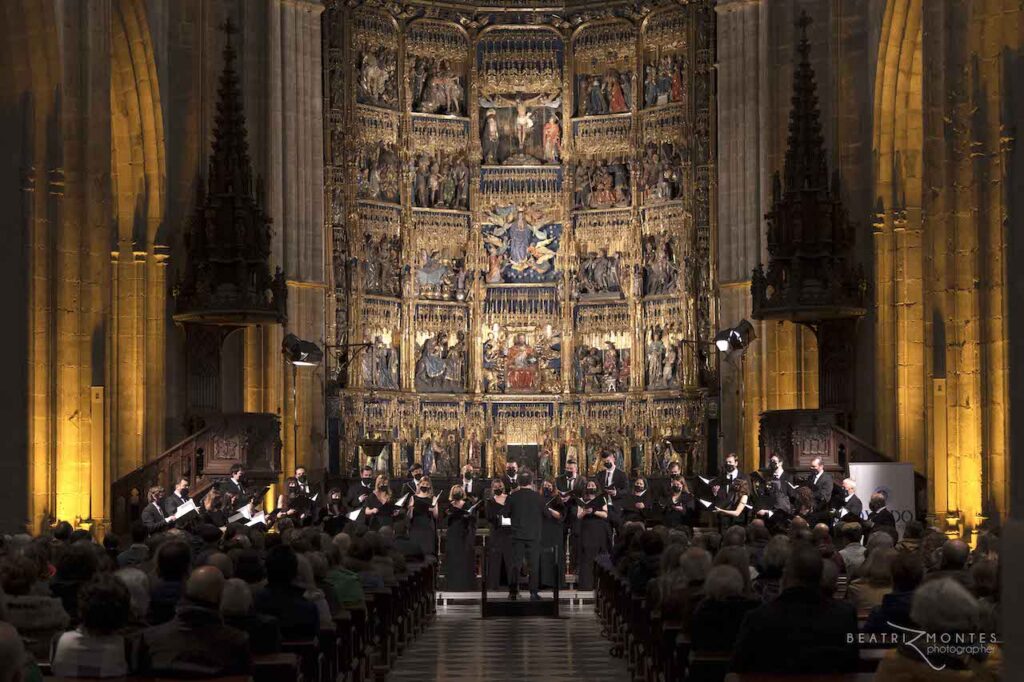The Asturian formation shows off with the “Officium defunctorum” of Victoria
JONATHAN MALLADA ÁLVAREZ – LNE – 03·April·22
The interpretive complexity of a repertoire as concrete as the polyphony of the sixteenth and seventeenth centuries requires an endless number of vocal virtues and is a maximum requirement for choristers due to the intensity of the pieces, where a cappella singing (in a perpetual counterpoint) seriously hinders the tuning or balance between the different strings. However, “El León de Oro” has stood out for combining all these qualities with the added value of keeping the group in a constant renovation, currently resulting in a young choir, but without diminishing one iota its quality standards. All this was demonstrated in the concert last Friday, where the gozoniegos executed, with masterful results, one of the masterpieces of Tomás Luis de Victoria: The “Officium defunctorum”.
The pupils of Marco Antonio García de Paz, perfectly balanced (17 women and 16 men), knew how to print the pulsation required by each of Victoria’s numbers without the tempo decaying at any time. “El león de oro” recreated the articulation of musical phrases, braided with care by the Luanquins, perfectly assembling each of the delays and anticipations so characteristic of this repertoire, like a Renaissance puzzle with a thousand musical notes that fit in perfect order.

Precise and direct entries, clean tuning, ethereal invocations in the voice of the sopranos and a final care very favored by the acoustics of the temple where, despite the already usual use of masks, the harmonics of “the lions” floated, always with the right volume. The kyrie and the Sanctus stood out for the combination between the neatness of the high voices and the power of the bass, but it would be the Agnus dei that would generate a great expressiveness thanks to the indescribable beauty of its melody and the careful interpretation by all. One of those auditions that reconciles you to the human race.
The motet “Versa est in luctum”, by Alonso Lobo, left a maximum respect for the text that resulted in an excellent diction and in a bright sound and well timbrado by the choir, well grounded throughout the concert and with a warm and enveloping sound. In short, a golden lion for a golden polyphony program.
